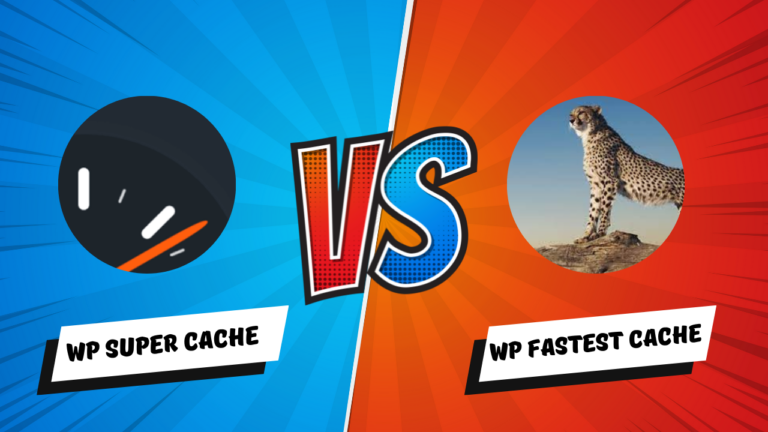Digital advertising has become a crucial component of marketing strategies for businesses of all sizes. With the ever-increasing complexity and competitiveness of the digital advertising landscape, businesses need advanced tools and insights to optimize their advertising campaigns and drive better results. This is where Digital Advertising Intelligence Software comes into play.
Digital Advertising Intelligence Software is a specialized technology that empowers businesses to analyze, monitor, and optimize their digital advertising efforts across various platforms and channels. It provides comprehensive data analytics, performance tracking, and actionable insights to improve ad targeting, creative messaging, budget allocation, and overall campaign effectiveness.
By leveraging the power of data and advanced analytics, Digital Advertising Intelligence Software helps businesses make informed decisions and maximize the return on their advertising investments. It brings together various data sources, including ad platforms, website analytics, customer data, and competitive intelligence, to provide a holistic view of advertising performance and opportunities.
Key Features of Digital Advertising Intelligence Software:
- Data Integration: The software integrates data from multiple advertising platforms, such as Google Ads, Facebook Ads, and others, as well as other relevant data sources, to provide a unified and comprehensive view of advertising performance.
- Performance Tracking and Reporting: Digital Advertising Intelligence Software offers real-time tracking and reporting of key advertising metrics, such as impressions, clicks, conversions, cost per acquisition (CPA), return on ad spend (ROAS), and more. It provides customizable dashboards and reports for monitoring and evaluating campaign performance.
- Competitive Analysis: The software enables businesses to gain insights into their competitors’ advertising strategies, including ad creatives, targeting, and budget allocation. This helps identify opportunities, benchmark performance, and refine advertising strategies to stay ahead in the competitive landscape.
- Audience Segmentation and Targeting: Digital Advertising Intelligence Software helps businesses identify and understand their target audience better. It provides audience segmentation based on demographics, interests, behavior, and other parameters to optimize ad targeting and improve campaign effectiveness.
- Ad Creative Analysis: The software allows businesses to analyze the performance of different ad creatives, including images, copy, headlines, and calls to action. It helps identify high-performing creatives and provides recommendations for optimizing creative elements to drive better engagement and conversions.
- Budget Optimization: Digital Advertising Intelligence Software assists businesses in allocating their advertising budgets effectively. It provides insights into the performance and ROI of different campaigns, keywords, and channels, enabling businesses to optimize budget allocation for maximum impact.
Digital Advertising Intelligence Software plays a vital role in helping businesses make data-driven decisions, improve campaign performance, and achieve their advertising goals. It empowers marketers and advertisers with actionable insights and enables them to stay ahead in the dynamic and competitive digital advertising landscape.
Table of Contents
ToggleHere are 9 top Digital Advertising Intelligence Software
1. Google Marketing Platform
Google Marketing Platform is a comprehensive suite of advertising and analytics tools offered by Google. It combines various products and services to help businesses plan, execute, measure, and optimize their digital marketing campaigns. The platform offers a range of solutions for advertising across multiple channels and gaining insights into campaign performance.
Key components of the Google Marketing Platform include:
- Google Ads: This is Google’s online advertising platform that allows businesses to create and manage ads across Google’s vast network, including search, display, video, and mobile advertising. It provides powerful targeting options, bidding strategies, and performance-tracking capabilities.
- Display & Video 360: Formerly known as DoubleClick Bid Manager, Display & Video 360 is a programmatic buying platform that enables advertisers to manage and optimize their display, video, and native advertising across multiple ad exchanges and publishers.
- Google Analytics 360: Google Analytics 360 is an enterprise-level analytics solution that provides advanced insights into user behavior, website performance, and advertising effectiveness. It offers robust tracking, reporting, and data visualization capabilities, along with integration with other Google Marketing Platform products.
- Search Ads 360: Search Ads 360, previously known as DoubleClick Search, is a search management platform that allows advertisers to manage and optimize their search engine marketing (SEM) campaigns across multiple search engines, such as Google, Bing, and Yahoo.
- Campaign Manager: Campaign Manager, formerly known as DoubleClick Campaign Manager, is an ad management and measurement tool that provides end-to-end campaign tracking and reporting. It helps advertisers manage ad creative, implement tags, track conversions, and measure the impact of their campaigns.
Google Marketing Platform offers advertisers a unified and integrated approach to digital marketing. It enables them to reach their target audience across various channels, gain insights into user behavior, and optimize their campaigns for better performance. By leveraging Google’s vast reach and powerful tools, businesses can maximize the effectiveness of their digital advertising efforts and achieve their marketing goals.
2. Adobe Advertising Cloud
Adobe Advertising Cloud is a comprehensive platform offered by Adobe that enables advertisers and marketers to plan, execute, and optimize their digital advertising campaigns across various channels and devices. It provides a range of tools and features to streamline the advertising process and maximize campaign performance.
Key features and capabilities of Adobe Advertising Cloud include:
- Cross-Channel Advertising: The platform allows advertisers to reach their target audience across multiple channels, including display, video, search, social media, and more. It offers integration with various ad networks, exchanges, and demand-side platforms (DSPs) to ensure maximum reach and visibility.
- Audience Targeting and Segmentation: Adobe Advertising Cloud provides robust audience targeting capabilities, allowing advertisers to define specific audience segments based on demographics, interests, behaviors, and other criteria. This helps deliver personalized and relevant ads to the right audience.
- Programmatic Advertising: The platform leverages programmatic advertising technology to automate the buying and selling of ad inventory. It offers real-time bidding (RTB), dynamic creative optimization, and advanced targeting options to optimize ad placements and achieve better campaign performance.
- Data Management: Adobe Advertising Cloud includes a data management platform (DMP) that allows advertisers to collect, analyze, and leverage audience data to inform their advertising strategies. It enables the creation of unified customer profiles and provides insights for more effective targeting and personalization.
- Analytics and Reporting: The platform offers robust analytics and reporting capabilities to measure the performance and impact of advertising campaigns. It provides real-time data, customizable dashboards, and in-depth reports to track key metrics, optimize campaigns, and demonstrate ROI.
- Creative Optimization: Adobe Advertising Cloud enables advertisers to test and optimize their ad creative to improve engagement and conversions. It offers tools for A/B testing, creative versioning, and dynamic ad serving to deliver the most effective ad experiences.
Adobe Advertising Cloud integrates with other Adobe Marketing Cloud solutions, such as Adobe Experience Manager and Adobe Analytics, to provide a seamless end-to-end advertising and marketing ecosystem.
By leveraging Adobe Advertising Cloud, advertisers can streamline their digital advertising efforts, optimize ad spend, reach the right audience, and achieve better campaign performance. It offers a comprehensive suite of tools and capabilities to drive results in the ever-evolving digital advertising landscape.
Also Read: 7 Best WordPress Affiliate Manager Plugins For 2024
3. Kenshoo
Kenshoo is a leading digital advertising software platform that provides advanced tools and solutions for managing and optimizing advertising campaigns across various channels. It offers advertisers and agencies a comprehensive set of features to drive better performance, increase efficiency, and maximize return on advertising investment.
Key features and capabilities of Kenshoo include:
- Cross-Channel Advertising: Kenshoo enables advertisers to manage and optimize their campaigns across multiple channels, including search, social media, e-commerce marketplaces, and more. It provides a unified platform for seamless campaign management and performance tracking.
- Automation and Optimization: The platform leverages advanced algorithms and machine learning to automate campaign management tasks and optimize advertising performance. It offers automated bidding, budget allocation, and ad targeting to drive better results and improve return on ad spend (ROAS).
- Advanced Analytics and Reporting: Kenshoo provides robust analytics and reporting capabilities to gain deep insights into campaign performance. It offers real-time data visualization, customizable dashboards, and detailed reports to track key metrics, measure attribution, and make data-driven decisions.
- Audience Targeting and Segmentation: The platform offers powerful audience targeting and segmentation features, allowing advertisers to reach their desired audience with precision. It enables the creation of custom audience segments based on demographics, interests, behaviors, and more for highly targeted and personalized campaigns.
- Dynamic Creative Optimization: Kenshoo facilitates dynamic creative optimization by delivering personalized and relevant ad experiences to users. It enables advertisers to dynamically generate ad creative based on user data and context, improving engagement and conversions.
- Competitive Intelligence: Kenshoo provides competitive intelligence tools that allow advertisers to gain insights into their competitors’ advertising strategies. It enables monitoring of competitor campaigns, ad copy, keywords, and more to inform and improve campaign performance.
Kenshoo is trusted by numerous global brands and agencies for its robust technology and comprehensive set of features. It helps advertisers streamline their advertising efforts, drive better results, and stay ahead in the ever-evolving digital advertising landscape.
4. Adverity
Adverity is a leading marketing data intelligence platform that empowers businesses to connect, analyze, and visualize their marketing data from various sources in a unified and meaningful way. It provides a comprehensive solution for data integration, transformation, and reporting, enabling marketers to make data-driven decisions and optimize their marketing campaigns.
Key features and capabilities of Adverity include:
- Data Integration: Adverity connects and consolidates data from various marketing channels, platforms, and data sources, including advertising platforms, social media, web analytics, CRM systems, and more. It offers pre-built connectors and APIs to streamline the data integration process.
- Data Transformation and Normalization: The platform enables marketers to transform and harmonize their data into a consistent format for analysis. It provides data cleansing, mapping, and transformation capabilities, ensuring data accuracy and consistency across different sources.
- Data Visualization and Reporting: Adverity offers powerful data visualization tools and customizable reporting dashboards. It allows marketers to create visually appealing and interactive reports, charts, and graphs to gain insights from their marketing data and share them with stakeholders.
- Automated Data Insights: The platform leverages artificial intelligence and machine learning algorithms to automatically detect patterns, anomalies, and insights within the marketing data. It helps marketers uncover hidden trends and opportunities for optimization.
- Campaign Performance Tracking: Adverity provides robust tracking and monitoring of marketing campaigns. It allows marketers to measure key performance metrics, such as impressions, clicks, conversions, return on ad spend (ROAS), and more, to evaluate the effectiveness of their campaigns.
- Data Governance and Compliance: Adverity ensures data governance and compliance by offering data validation, security, and privacy features. It helps businesses adhere to data protection regulations and maintain data integrity and security.
Adverity serves as a central hub for marketers to access and analyze their marketing data, eliminating the challenges of data silos and manual data processing. It enables marketers to gain a holistic view of their marketing performance, make data-driven decisions, and optimize their marketing strategies.
Also Read: 15 Best Free Open-source Content Management Systems
5. Adstage
AdStage is a comprehensive cross-channel advertising platform that empowers marketers and advertisers to manage, optimize, and report on their digital advertising campaigns. It offers a suite of tools and features that streamline the advertising workflow and help drive better campaign performance across various channels and platforms.
Key features and capabilities of AdStage include:
- Cross-Channel Campaign Management: AdStage allows marketers to create, manage, and optimize their advertising campaigns across multiple channels, including search, social media, display, and more. It provides a centralized platform for seamless campaign management and performance tracking.
- Automated Campaign Optimization: The platform leverages machine learning and automation to optimize campaign performance. It offers automated bidding, budget allocation, and ad creative testing to drive better results and improve return on ad spend (ROAS).
- Data Analytics and Reporting: AdStage provides robust data analytics and reporting capabilities to track and measure campaign performance. It offers customizable dashboards, real-time data visualization, and comprehensive reports to gain insights into key metrics, attribution, and overall campaign effectiveness.
- Audience Targeting and Segmentation: The platform enables precise audience targeting and segmentation. It allows marketers to define and reach specific audience segments based on demographics, interests, behaviors, and more, ensuring their ads are delivered to the right audience.
- Ad Creative Management: AdStage facilitates efficient ad creative management and testing. It enables marketers to easily create, edit, and optimize ad creatives for different channels and formats, ensuring maximum engagement and conversions.
- Collaboration and Workflow Efficiency: AdStage offers collaboration features that streamline the advertising workflow for teams. It allows marketers to collaborate on campaign management, share insights, and streamline communication to improve efficiency and productivity.
AdStage is trusted by businesses of all sizes to streamline their advertising efforts, optimize campaign performance, and achieve their marketing goals. It provides a comprehensive platform for end-to-end campaign management, data analysis, and reporting, making it easier for marketers to drive results in today’s complex advertising landscape.
6. Marin Software
Marin Software is a leading digital advertising management platform that helps marketers and advertisers optimize their online advertising campaigns across various channels and devices. It offers a range of tools and features to streamline campaign management, improve performance, and drive better results.
Key features and capabilities of Marin Software include:
- Cross-Channel Campaign Management: Marin Software enables marketers to manage and optimize their advertising campaigns across multiple channels, including search, social media, display, and more. It provides a centralized platform for campaign creation, budget allocation, and performance tracking.
- Automated Bidding and Optimization: The platform leverages advanced algorithms and machine learning to automate bidding and campaign optimization. It offers automated bidding strategies, budget management, and ad placement optimization to maximize return on ad spend (ROAS).
- Audience Targeting and Segmentation: Marin Software provides powerful audience targeting and segmentation capabilities. It allows marketers to define and reach specific audience segments based on demographics, interests, behaviors, and more, ensuring highly targeted and personalized campaigns.
- Performance Analytics and Reporting: The platform offers robust analytics and reporting tools to measure and analyze campaign performance. It provides real-time data visualization, customizable dashboards, and detailed reports to track key metrics, identify trends, and make data-driven decisions.
- Cross-Device Tracking: Marin Software enables advertisers to track and attribute conversions across different devices and touchpoints. It helps marketers understand the customer journey and optimize campaigns to reach users at the right time and on the right device.
- Creative Management: Marin Software allows marketers to streamline ad creative management across various channels. It provides features for ad creation, testing, and optimization, ensuring engaging and effective ad experiences.
Marin Software’s comprehensive platform helps marketers streamline their digital advertising efforts, optimize campaign performance, and achieve their marketing objectives. By leveraging its advanced automation and optimization capabilities, advertisers can save time, reduce manual effort, and focus on strategic campaign management.
Also Read: An Odyssey of Innovation: WordPress’s 20-Year Impact on Web Development
7. SEMrush
SEMrush is a powerful all-in-one digital marketing platform that provides a wide range of tools and features to help businesses optimize their online presence, conduct competitive research, and drive better results in their digital marketing campaigns. It offers comprehensive solutions for SEO (Search Engine Optimization), PPC (Pay-Per-Click) advertising, content marketing, social media management, and more.
Key features and capabilities of SEMrush include:
- Keyword Research: SEMrush offers robust keyword research tools that help businesses identify valuable keywords related to their industry and target audience. It provides keyword suggestions, search volume data, competition analysis, and insights into keyword trends to optimize content and improve organic search visibility.
- Competitive Analysis: The platform allows businesses to conduct in-depth competitive research and analysis. It provides information on competitors’ organic and paid search strategies, backlink profiles, top-performing keywords, and more. This helps businesses gain insights and develop effective marketing strategies.
- SEO Optimization: SEMrush offers a suite of SEO tools to optimize websites for better search engine rankings. It provides on-page SEO analysis, site audits, backlink analysis, and recommendations for improving website performance and visibility in search engine results.
- PPC Advertising: The platform enables businesses to create, manage, and optimize their PPC advertising campaigns. It offers features for keyword bidding, ad copy analysis, ad group management, and competitor ad monitoring. SEMrush also provides insights to improve campaign performance and maximize ROI.
- Content Marketing: SEMrush provides tools for content creation, optimization, and distribution. It offers content topic research, content performance analysis, and suggestions for improving content engagement and visibility. It also helps businesses track their content marketing efforts and identify opportunities for improvement.
- Social Media Management: SEMrush includes social media management features to schedule and publish posts, track social media performance, and monitor brand mentions. It enables businesses to engage with their audience, analyze social media campaigns, and measure social media ROI.
SEMrush is trusted by businesses of all sizes, from small businesses to large enterprises, to enhance their online visibility, outperform competitors, and drive targeted traffic to their websites. Its comprehensive set of tools and features make it a valuable platform for digital marketing professionals and businesses looking to optimize their online marketing efforts.
8. SpyFu
SpyFu is a comprehensive competitive intelligence tool that provides valuable insights into competitors’ online marketing strategies and helps businesses optimize their own digital marketing campaigns. It offers a range of features and data analysis tools to uncover competitor keywords, ad campaigns, and SEO strategies.
Key features and capabilities of SpyFu include:
- Competitor Research: SpyFu allows businesses to research and analyze their competitors’ online presence. It provides insights into their organic and paid search keywords, backlink profiles, ad copy, and ad placements. This information helps businesses identify competitive advantages and develop effective marketing strategies.
- Keyword Research: The platform offers robust keyword research tools to identify valuable keywords for SEO and PPC campaigns. It provides search volume data, keyword suggestions, and insights into keyword difficulty and competition. This helps businesses optimize their content and ad targeting for better visibility and higher rankings.
- Ad Campaign Analysis: SpyFu enables businesses to analyze their competitors’ PPC advertising campaigns. It provides information on their top-performing keywords, ad copy, and ad spending. This helps businesses gain insights into effective ad strategies and optimize their own campaigns accordingly.
- SEO Analysis: The platform offers SEO analysis tools to evaluate competitors’ organic search performance. It provides data on their top-ranking pages, backlink profiles, and SEO strategies. This information helps businesses identify opportunities to improve their own SEO efforts and outrank competitors.
- Domain Comparison: SpyFu allows businesses to compare their website’s performance against competitors. It provides data on organic search rankings, paid search keywords, and backlink profiles. This helps businesses benchmark their performance and identify areas for improvement.
- Reporting and Tracking: SpyFu provides reporting and tracking features to monitor and measure marketing campaigns. It offers customizable reports, keyword rank tracking, and competitor tracking. This allows businesses to track their progress, measure ROI, and make data-driven decisions.
SpyFu is a valuable tool for businesses looking to gain a competitive edge in their digital marketing efforts. By uncovering competitors’ strategies and identifying untapped opportunities, businesses can optimize their campaigns, improve their online visibility, and drive better results.
Also Read: The Product Launch Checklist: From Idea to Execution
9. iSpot.tv
iSpot.tv is a leading digital advertising analytics and measurement platform that provides valuable insights and intelligence for TV advertising. It specializes in tracking, measuring, and analyzing TV ad campaigns, offering comprehensive data and metrics to help businesses optimize their TV advertising strategies.
Key features and capabilities of iSpot.tv include:
- TV Ad Measurement: iSpot.tv leverages advanced technology to measure TV ad performance across various networks and channels. It provides real-time and historical data on TV ad airings, impressions, reach, frequency, and estimated spend. This helps businesses understand the effectiveness and reach of their TV campaigns.
- Competitive Analysis: The platform enables businesses to track and analyze their competitors’ TV ad campaigns. It provides insights into their ad creative, airings, spending, and performance. This helps businesses benchmark their performance and gain a competitive advantage by understanding industry trends and strategies.
- Ad Creative Analytics: iSpot.tv offers detailed analytics on TV ad creative. It provides data on ad length, themes, actors, and more. This information helps businesses understand which types of creatives resonate with their target audience and make informed decisions for their own ad campaigns.
- Audience Measurement: The platform provides audience measurement capabilities, allowing businesses to understand the demographics and viewership of their TV ads. It offers insights into audience age, gender, household income, and more, helping businesses target their ads effectively and reach the desired audience.
- Campaign Optimization: iSpot.tv’s analytics and measurement capabilities enable businesses to optimize their TV ad campaigns. By tracking performance metrics, analyzing audience response, and gaining insights from competitor analysis, businesses can make data-driven decisions to improve their ad targeting, messaging, and overall campaign effectiveness.
- Cross-Channel Attribution: iSpot.tv offers cross-channel attribution capabilities, allowing businesses to connect TV ad exposure to digital actions such as website visits, app downloads, or online purchases. This helps businesses understand the impact of TV advertising on digital conversions and ROI.
iSpot.tv provides businesses with valuable insights into TV advertising performance and competitive intelligence. By leveraging its data and analytics, businesses can optimize their TV ad campaigns, make informed decisions, and maximize the impact of their TV advertising efforts.
Conclusion
Digital Advertising Intelligence Software plays a crucial role in helping businesses optimize their digital advertising campaigns and gain a competitive edge in the online advertising landscape. These software solutions provide valuable insights, data analytics, and measurement capabilities that enable businesses to make data-driven decisions and maximize the effectiveness of their advertising efforts.
By leveraging digital advertising intelligence software, businesses can conduct thorough competitor research, identify valuable keywords, optimize ad campaigns, track performance metrics, and gain a deeper understanding of their target audience. These tools streamline campaign management, provide real-time data visualization, and offer comprehensive reporting features, allowing businesses to monitor and measure the success of their advertising campaigns.
Furthermore, digital advertising intelligence software empowers businesses to optimize their ad spend, improve return on investment (ROI), and enhance overall campaign performance. By uncovering insights about competitors’ strategies, monitoring industry trends, and gaining audience insights, businesses can fine-tune their targeting, messaging, and creative elements to drive better results.
The top digital advertising intelligence software mentioned in this article, such as Google Marketing Platform, Adobe Advertising Cloud, Kenshoo, Adverity, and more, offer a wide range of features to meet the diverse needs of businesses. Whether it’s optimizing search engine advertising, managing social media campaigns, analyzing TV ad performance, or conducting comprehensive competitor research, these tools provide the necessary data and analytics to drive success in the digital advertising space.
Frequently Asked Questions (FAQs)
Digital Advertising Intelligence Software is a tool or platform that provides insights and analytics on digital advertising campaigns. It helps advertisers and marketers track and analyze the performance of their online advertising efforts across various channels.
You can track a wide range of metrics, including click-through rates (CTR), conversion rates, ad spending, return on investment (ROI), impressions, audience demographics, ad placements, and more. The specific metrics may vary depending on the software and platforms you use.
Digital Advertising Intelligence Software helps businesses optimize their advertising campaigns by providing data-driven insights. It enables them to make informed decisions, improve ad targeting, reduce ad spend wastage, and ultimately achieve better results and ROI.
Yes, many Digital Advertising Intelligence Software solutions offer integrations with other marketing tools and platforms, such as Google Ads, Facebook Ads, Google Analytics, and CRM systems. These integrations streamline data collection and analysis.
Yes, Digital Advertising Intelligence Software can be valuable for businesses of all sizes. Many solutions offer pricing tiers or packages that cater to the needs and budgets of small businesses. It can help small businesses compete effectively in the digital advertising landscape by optimizing their campaigns and maximizing ROI.
Interesting Reads:
How to Enhance Your WordPress Affiliate Site with AI-Powered Plugins








